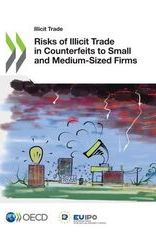Content
Numbers, facts, trends

Fight against cancer: Germany leads Europe in cancer-related technologies - challenges for start-ups
Germany is one of the leading nations for patents in the field of cancer-related technologies and ranks third in Europe for start-ups in cancer research. Nevertheless, scaling up innovative companies remains a challenge.
Current EPA study: "New Horizons in Oncology"
Germany leads Europe in patents
With around 5,400 international patent families (IPFs) in the field of cancer between 2010 and 2021, Germany leads Europe and accounts for 5.1 per cent of the global total. However, while German companies are showing strong innovative strength, competition from the USA and China is growing, particularly in the fields of cellular immunotherapy, gene therapy and image analysis.
Germany also performs well when it comes to start-ups in cancer research: with 208 companies, it is behind the United Kingdom (290) and France (246). However, many start-ups lack opportunities to scale up - only a quarter have reached the late growth phase, while 40 percent remain in an early phase.
This problem can be seen throughout Europe: in the USA, almost 40% of cancer-related start-ups have reached the late growth phase, compared to just 24% in the EU. The challenge lies less in innovative strength than in the structures needed to enable young companies to grow sustainably.
These findings come from the latest study ![]() "New Horizons in Oncology" by the European Patent Office (EPO), which was published to mark World Cancer Day. It highlights technological advances in cancer research and their impact on prevention, diagnosis and treatment.
"New Horizons in Oncology" by the European Patent Office (EPO), which was published to mark World Cancer Day. It highlights technological advances in cancer research and their impact on prevention, diagnosis and treatment.
Better protection for your IP: European Commission recommends actions to combat counterfeiting
The European commission has published a recommendation to protect intellectual property more efficiently. This recommendation contains various strategic measures (a so-called toolbox). While it is not legally binding, it offers suggestions on how to prosecute cybertheft and product piracy. On the one hand, these measures are meant to improve the collaboration between right holders, service providers and law enforcement, on the other hand they aim to encourage the use of modern technologies so that companies can better protect their intangible assets and enforce their rights.
The commission is developing a toolbox especially for small and medium-sized enterprises (SMEs) to raise awareness of cybertheft and help them to prevent or react to cyberattacks on trade secrets. There will also be a checklist detailing how SMEs can use artificial intelligence without compromising any of their intangible assets.
For competent authorities, the Commission recommends designating a single contact point for IP enforcement, similar to the EUIPO’s IP Enforcement Portal.
Further recommendations concern the strengthening of the market surveillance authorities, adapting IP practices to AI as well as increasing the maximum sanctions for serious criminal IP offences. In addition, they include practices aiming at faster, cheaper, and more ecological storage and disposal of counterfeits as well as integrating IP content in national training and education curricula.
The Commission’s Recommendation is based on the 2020 Intellectual Action Plan. You can find more details and links in the ![]() Commission’s press release of 19 March 2024.
Commission’s press release of 19 March 2024.
Start-ups holding patents and trade marks are more successful in securing funding
The European Patent Office (EPO) and the European Union Intellectual Property Office (EUIPO) have published a joint study that investigates the effects patent and trade mark rights have on the economic success of European start-ups. The probability of start-ups receiving venture capital later on increases with the registration of patents or trade marks.
This trend can already be noticed in the seed stage, but reaches its highest point during the early growth stage. According to the report, chances for start-ups that have applied for trade marks as well as patents during this stage are 10.2 times higher to receive funding by venture capitalists. For companies that have applied for patents chances are 6.4 times higher, and for companies that have applied for trade marks they are 4.3 times higher.
As per the report, this advantage is especially noticeable for “deep-tech” start-ups, since the development of groundbreaking technologies often necessitates high investments, but also has a long time to market. Enterprises can use patents and trade marks to help attract “patient” investors.
Of the sampled start-ups, 29% applied for a trade mark or patent. The number of companies from the biotechnology sector was especially high (50%), followed by science and engineering (47%) as well as health care and manufacturing (40% each). The use of IP varies within European countries: With 42% each, Finland and France both have the highest percentage of start-ups that have filed for an IP right, followed by Germany (40%) and Austria (40%).
Source: ![]()
![]() Study and
Study and ![]() Press release by the European Patent Office, 17 October 2023
Press release by the European Patent Office, 17 October 2023
Illicit trade in counterfeits is especially damaging to SMEs
Data from customs seizures shows that it is often SMEs that are affected by product piracy, especially when it comes to goods like electronics and electronic machinery, clothing, perfumes, cosmetics and toys. A survey amongst SMEs adds to this data and reveals that 15% of SMEs that hold IP rights detect infringements, while this percentage increases to nearly 20% with innovative companies.
However, up to 40% of SMEs don’t monitor their markets for counterfeits, so the actual number of infringements could be higher.
When it comes to enforcing IP rights and deterring counterfeiting, the most popular method for SMEs is sending takedown notices. At the same time, 11% of SMEs whose IP has been infringed do not enforce their rights. This is because they perceive enforcement procedures to be too complex, lengthy and costly.
Product counterfeits have a significant impact on SMEs, like loss of revenue, reputational damage and loss of their competitive advantages. An OECD report on the topic stresses the importance of taking into account the danger that illicit trade poses to SMEs when drafting innovation and entrepreneurship policies. You can find the complete study on the ![]() OECD website.
OECD website.
Bild 1: Bild 1: iStock.com/skynesher, DPMA, Picture 2: iStock.com/metamorworks, Bild 3: iStock.com/wildpixel, Bild 3: iStock.com/peshkov, Bild 4: EPA, Bild 5: OECD
Last updated: 24 February 2025





Not only protecting innovations
Social Media